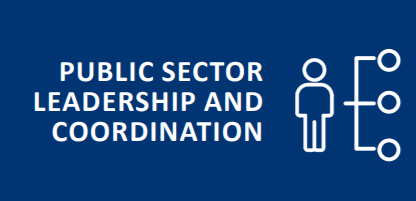In 2009, the U.S. created the White House Office of Social Innovation and Civic Participation. Its mission was to advance opportunity, equality, and justice, and to elevate the impact investing industry. As administrations changed hands in subsequent years, the office was ultimately dismantled, which led to a current lack of specified-issue area knowledge transference within the impact investing field.

As the federal government deals with the COVID-19 pandemic and its effects on all levels of society, it’s constituted a need for an effective Public-Sector Leadership and Coordination ecosystem that can be used to reshape today’s economy around good jobs, clean energy, and shared prosperity. PCV’s expansive discussion paper – Meeting The Moment – examines how impact investing policy can be used to mobilize private capital to address inequality and support COVID-19 recovery efforts in the U.S.
While there are many strategies to establish good public governance, foster awareness, transparency, and scale public-sector projects, Meeting the Moment discusses three widely used approaches to establish this public-sector ecosystem. This platform can equip White House and congressional officials and staffers with sufficient knowledge of the impact investing industry to advise on enabling policy and regulatory environments, increase access to markets for procurements, and examine options to increase capital access. We can also learn from some examples that have been tested in other major economies. For example:
A Central Dedicated Unit Approach
Impact investing has a relatively long history in the U.K.’s federal government. The U.K. has had a dedicated unit to support the impact investing industry at the federal level since 2003. The unit has moved across various government departments, now sitting under the Department for Digital, Culture, Media, and Sports and called the Inclusive Economic unit.
A Multi-Tiered Approach
To the North in Canada, their approach to public sector leadership and coordination involves several different initiatives. The Canadian federal government holds domestic impact investing responsibility under the Employment and Social Development Canada (ESDC), a department responsible for developing, managing, and delivering social programs and services with the mission of improving the standard of living and quality of life for all Canadians. Within the ESDC, the government formed the Social Innovation and Social Finance Strategy Co-Creation Steering Group, which developed policy recommendations in 2018 to advance social innovation and finance in Canada.
A National Strategy Approach
Brazil’s national strategy on impact investing, Enimpacto, was established in 2017. Enimpacto’s four main objectives to coordinate and engage the public and private sectors were to increase the number of impact businesses, expand the capital directed at impact, strengthen intermediary organizations, and promote a favorable institutional and regulatory environment.
Like Brazil, Portugal dedicated a unit within the Ministry of Presidency and Administrative Modernization to develop a stronger relationship between the public and private sectors by creating a national strategy for impact investing and social innovation in 2015. With changes with the political parties, the structure remained the same.